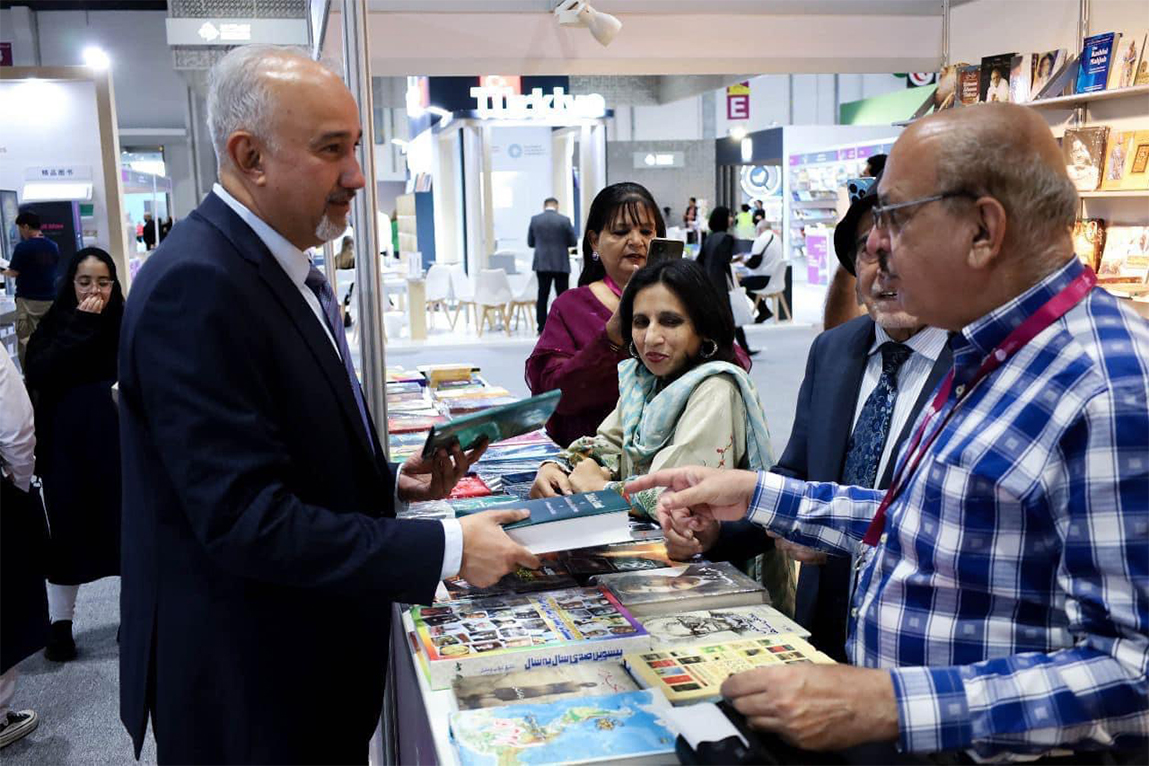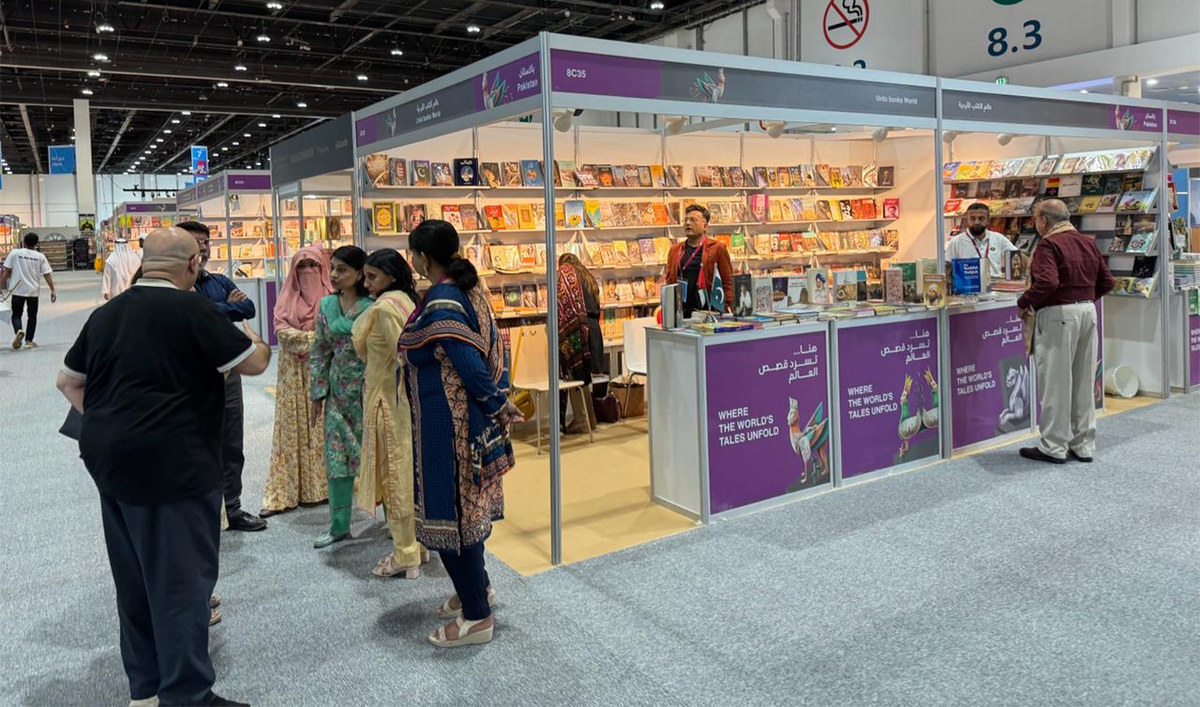ISLAMABAD: Pakistani writers taking part in the Abu Dhabi International Book Fair on Wednesday hailed the platform as a crucial opportunity for the South Asian country to promote its culture and dispel negative stereotypes associated with the nation.
The international fair kicked off on Apr. 9 and is scheduled to continue till May 5 in Abu Dhabi. It is an annual event that brings different writers together to promote reading, diverse cultures and knowledge locally, regionally, and globally. Organizers of the fair say their aim is also to promote cultural exchange and dialogue between several nations.
It also brings together leaders from the publishing and creative industries every year, providing promising opportunities for those involved in this sector to form new partnerships, learn about the latest trends and developments, and discuss its fundamental priorities.
For the first time ever, Pakistani writers are taking part in the international festival in two different sessions. One was held on May 1 while the other is slated to take place on May 3.
“Pakistan’s maiden participation in this event is crucial not only for the diaspora but also for familiarizing the Gulf and the world with Pakistan’s cultural richness, countering stereotypes, and dispelling reductionist descriptions,” Dr. Osama Siddique, a Pakistani novelist, told Arab News from Abu Dhabi.

Pakistani envoy to UAE, Faisal Niaz Tirmizi (left), visits the Pakistani stall at the Abu Dhabi International Book Fair in Abu Dhabi, UAE on April 30, 2024. (Pakistan mission in UAE )
Siddique is part of a panel that will discuss the state of Pakistan’s literary on May 3. He said Pakistani literature has struggled on the global stage due to a lack of support from the state, ineffective institutions, expensive printing materials and a lack of publishing industry development.
“Writers need to be proactive, and publishers must elevate their standards, and events like this provide a perfect platform for this,” he added.
He said Pakistan often falls short of showcasing its rich civilization, culture, and literature, despite the country’s profound historical and linguistic heritage spanning over 9,000 years.
He said Pakistani writers, local entrepreneurs and the Pakistani embassy in UAE collaborated to ensure Pakistan’s participation in the annual fair for the first time this year.
“It’s a start, albeit insufficient,” he said.

Pakistani writers participate at the Abu Dhabi International Book Fair in Abu Dhabi, UAE on May 01, 2024. (Dr. Osama Siddique)
“It is vital to capitalize on such opportunities, considering the significant cultural investments made by the Gulf states in education, literature, and the arts,” he noted.
Tahira Iqbal, a Pakistani novelist who writes in Urdu, said participating in such events is crucial as it allows one to connect with writers from diverse backgrounds, languages, and regions.
Iqbal will also attend the May 3 session with Siddique as a panelist.
“Although Pakistani fiction is of high quality, it has not garnered significant recognition on the global stage, so participating in such events can address this issue,” Iqbal told Arab News.
Shazia Ali Khan, a UAE-based Urdu film screenplay writer, said such events provided an opportunity for writers to challenge preconceived notions about their country, its culture, and the role of women within it.
“So it is almost like an ambassadorial or diplomatic mission, where just us being there and speaking our minds may or may not remove any notions in people’s minds about where we come from, what our culture is, and how empowered the women are,” Khan told Arab News.
Khan stressed that Pakistani writers should ensure their literary works are translated so that they reach a wider audience, noting how most literary works originating from Pakistan were in Urdu language.
“In the absence of good translations and the proper sort of publishing houses backing all of this up to get to the end user is a bit difficult,” Khan pointed out.
Faisal Niaz Tirmizi, Pakistan’s ambassador to the UAE, said the country’s participation in the event is a testament to the rich literary heritage and vibrant intellectual discourse that it possesses.
“This representation not only showcases the diversity and creativity of Pakistani literature but also fosters meaningful cultural exchanges on a global platform,” he told Arab News.
By engaging in such events, Tirmizi said Pakistan played a crucial role in promoting cross-cultural understanding, fostering dialogue, and building bridges of friendship and cooperation between nations.
















